#trauma and personality disorders
Explore tagged Tumblr posts
Text
Steele's Notes on NPD
NPD vs BPD
Generally have less capacity than BPD to mentalize, lack more insight, have more difficulty recalling early abuse/neglect, have less empathy toward others
Severely avoidant of genuine connection;
May need to keep a power differential in the relationship
Don’t respond well to being reassured that they are “human” and “normal,” unlike most borderline clients.
Classic NPD symptoms & behaviours
Arrogant, entitled, critical, controlling, lacks empathy
Inflated “self” is a defense against shame and devalued “self”
Experiences related to devalued self are completely avoided or denied
Generally are unable to acknowledge devalued self
Therapist should not explicitly confront the defense
Acknowledge that it might be lonely and challenging to feel that no one else is good enough
Explore any perceived disadvantages to the defense
Fragile NPD
Alternate between grandiosity and inadequacy
Unhappy, critical of others, anxious, envious, competitive, and have extreme reactions to perceived slights or criticism
Tend to obsessively compare themselves with others
Strong perfectionism
Have narcissistic defenses that work well until they are criticized or rejected
Can access their devalued self: therapist can focus on root causes of devalued self
Reversed NPD
Strong belief and need to be the worst, the sickest, the most traumatized patient
Underlying need to be special, but due to dysfunction, not adequacy
Strong need for validation and compassion
Therapist focuses on emotional validation and less on content of distress
Encourage client to communicate through more positive experiences and affect (compassionately shift focus from negative to positive experiences
Treatment approaches for NPD
Trauma-based in many clients
Certainly affected by quality of early relationships (neglect)
Work with conflicting idealized and devalued selves
Work with inner critic and perfectionism
Mentalization based treatment
Transference based psychotherapy
Dialectical behavior therapy
EMDR and other approaches to resolve early traumatic memories (often not explicitly accessible in the narcissistic patient)
Treatment approaches in Fragile NPD
Identify the conflicting idealized and devalued selves
Help client notice swings between the two
Help client recognize the distortions in both
“I suffer more than anyone; my abuse was the worst; I am completely damaged”
Versus
“I could have been and should be the best”
Help client deal with relentless inner critic
From Kathy Steele’s presentation 'Integrating Personality Disorders in our Work with Complex Trauma and Dissociation' (PDF), 18 August 2021, Delphi Centre.
[Transcribed from a PowerPoint presentation without notes; therefore this post is without context]
#npd#npd info#pd info#kathy steele#trauma and personality disorders#pds and trauma#dogpost#bpd vs npd#npd vs bpd
163 notes
·
View notes
Text
*displays textbook symptomatic behavior of my own disorder that I am well educated on* what’s my deal why am I like this
#I know exactly why I’m like this but why am I like this#I know what’s wrong with me but wtf is wrong with me#adhd autistic#audhd creature#cluster a#cluster b#cluster c#personality disorders#bpd stuff#late diagnosed autistic#cptsd recovery#did osdd#bpd#audhd#adhd problems#audhd problems#borderline personality disorder#complex trauma#mood disorders#anxiety disorders#psychotic disorders#neurological disability#neurodivergent#neurodiversity#trauma disorders#traumagenic
44K notes
·
View notes
Text

#actually boderline#borderline problems#being borderline#actually cluster b#depressing shit#cluster b#actually bpd#boderline personality disorder#bpd#parenting#mummy issues#mentally unwell#daddy issues#borderline personality traits#trauma#childhood#neglect#negative#mental health#heartbreak
33K notes
·
View notes
Text
Some of my favorite posts on r/BenignExperience from the past week
Thanks to the tumblr post that made me aware of this subreddit. It makes me smile.
Part two, part three, part four
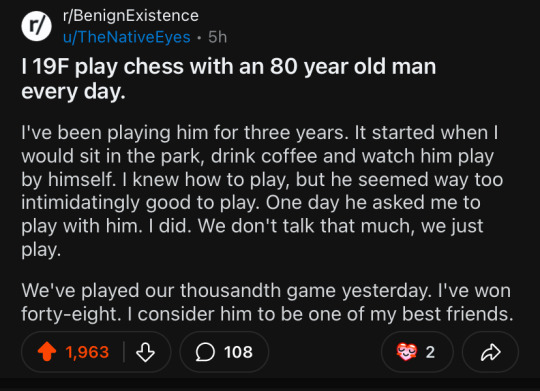
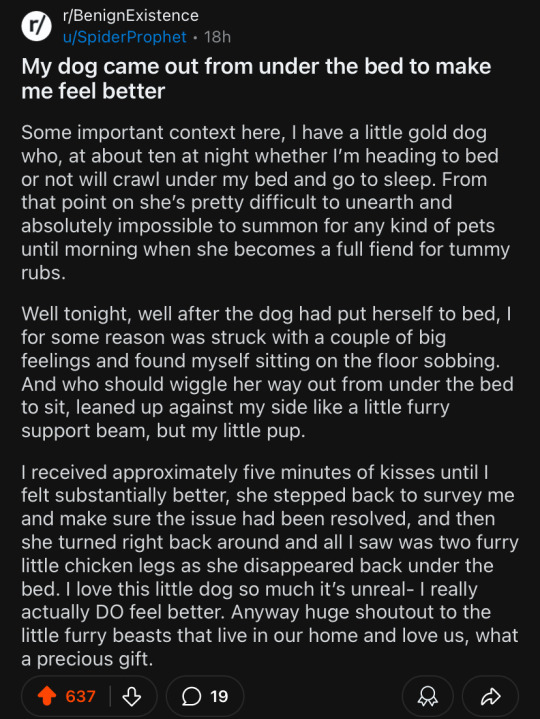
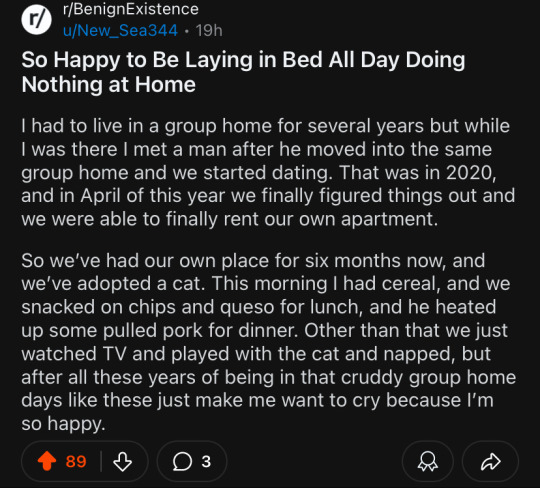





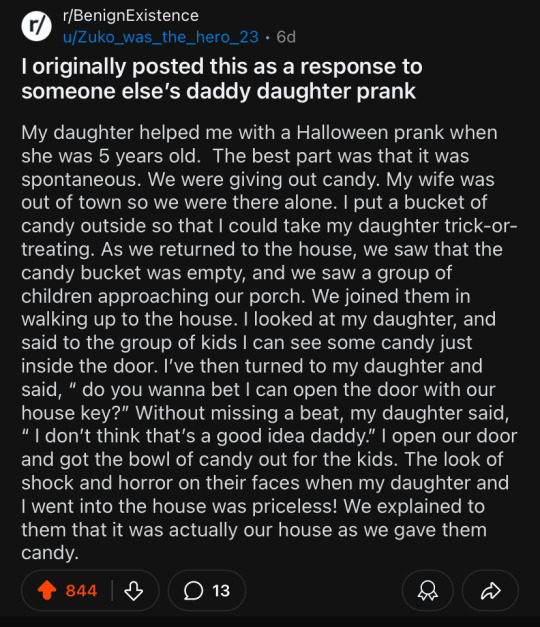
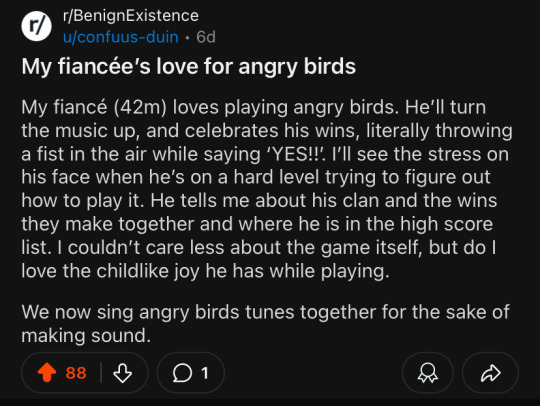
#mental health#positivity#self care#mental illness#self help#recovery#ed recovery#pro recovery#actuallytraumatized#info#bpd#childhood trauma#trauma#self h@rm#actually bpd#mental health awareness#mental health information#infographic#self love#self esteem#self worth#self improvement#soft reminders#positive reminders#mentally fucked#reddit#motivation#neurodivergent#body positive#borderline personality disorder
5K notes
·
View notes
Text

#trauma#childhood trauma#truth#bpd feels#bpd mood#bpd problems#bpd thoughts#bpd vent#actually borderline#actually bpd#borderline personality disorder#depressing shit#living with ptsd#tw depressing stuff#life suuuuucks#actually ptsd#complex ptsd#ptsd#childhood ptsd#borderline problems#bpd stuff#bpd#bpd blog
4K notes
·
View notes
Text
I just want to be soft
Why am I so angry, so harsh, so violent, so destroying.
It’s unfair
#trauma#childhood trauma#cptsd problems#just bpd things#bpd feels#bpd vent#actually bpd#bpd thoughts#bpd problems#living with borderline#being borderline#actually borderline#borderline personality disorder#bpd
6K notes
·
View notes
Text

#bpd vent#bpd feels#bpd tag#bpd thoughts#bpd mood#bpd problems#bpd stuff#borderline personality disorder#actually bpd#bpd#bpd fp#bpd shit#trauma#trauma vent#childhood trauma#substance abuse disorder#addiction
14K notes
·
View notes
Text
I’ve spent my life trying to be loved, and all I’ve ever found is proof of why I’m unlovable
#mental illness#actually borderline#trauma#mental health#actually bpd#bpd feels#bpd thoughts#bpd mood#bpd stuff#bpd awareness#bpd problems#bpd#borderline things#borderline problems#living with borderline#borderline pd#borderline thoughts#being borderline#borderline personality disorder#borderline
2K notes
·
View notes
Text
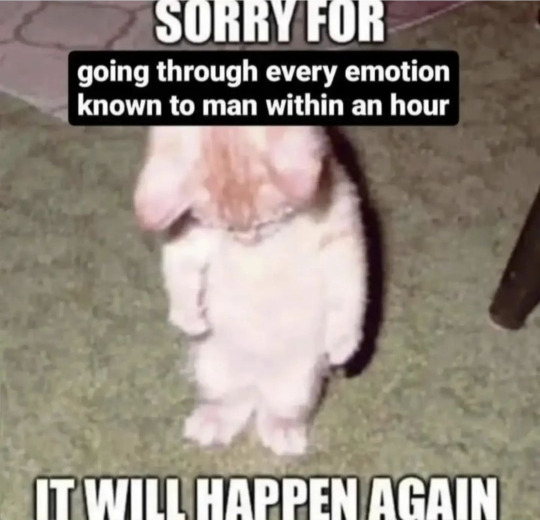
#actually dissociative#did#dissociation#dissociative identity disorder#dissociative system#osdd#did system#traumagenic did#traumagenic osdd#trauma#actually bpd#bpd#bpd thoughts#bpd problems#borderline personality disorder#actually borderline#borderline pd#manic depression#manic depressive#actually mentally ill#mentally fucked#mental illness#mental health
15K notes
·
View notes
Text
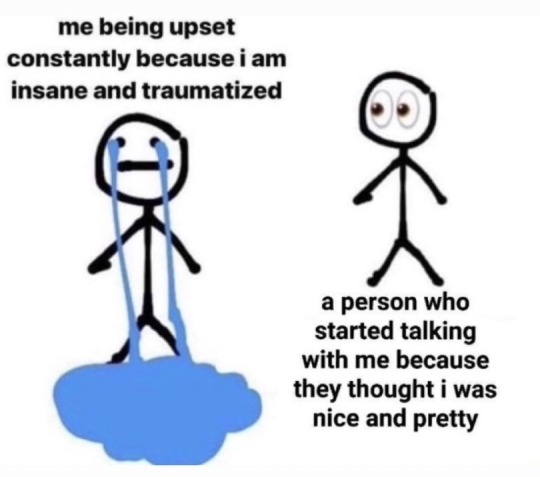
20K notes
·
View notes
Text
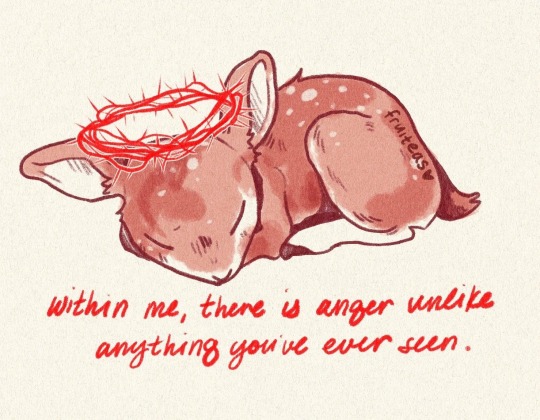
#not mine#fruiteas on insta#bpd#borderline personality disorder#actually borderline#borderline#bpd rage#ocd#bpd thoughts#bpd things#mental illness#anger issues#trauma#traumatized#childhood trauma#art
5K notes
·
View notes
Text
Steele's Notes on AvPD
AvPD Types
Fearful avoidant – highly dysregulated and explicitly fearful of rejection or criticism. Avoids relationships in order to avoid being hurt. Typically has insight into this conflict.
Dismissive avoidant – Over-regulated. Unaware of need to connect; finds relationships useless or peripheral to work or other activities. View relationships as a “bother.” Has same fear of being abandoned or rejected, but lacks insight and reflection. More challenging to treat.
AvPD Symptoms
Not only avoidant of relationship but of inner experience in general
Strong emotions are highly avoided
May be highly functional / intellectual
May be less functional, unable to work because of avoidance
May have co-occurring shyness / introversion
AvPD Treatment
Therapist should use a collaborative approach, making efforts not to over-activate the client’s attachment system.
Dismissive clients work well when they have specific collaborative goals to work on.
Therapist should not try to get the client to discuss the therapeutic relationship early in treatment. Let the relationship work in more implicit ways (“in the back seat of the car”)
Allow the client to regulate distance and closeness. Therapist should stay steady and not pursue or distance from the client.
Limit session to once a week; keep firm boundaries; don’t encourage dependency or regression
From Kathy Steele’s presentation 'Integrating Personality Disorders in our Work with Complex Trauma and Dissociation' (PDF), 18 August 2021, Delphi Centre.
[Transcribed from a PowerPoint presentation without notes; therefore this post is without context]
111 notes
·
View notes
Text
Mfs when a trauma response makes someone an asshole and isn't just some cute uwu quirky part of their personality

#cluster b#bpd#npd#aspd#trauma#trauma response#personality disorder#borderline personality disorder#antisocial#antisocial personality disorder#womp womp
2K notes
·
View notes
Text

“Mouthful of Forevers”, Clementine von Radics
#not mine#dark poetry#dark literature#vent poetry#poetry#tw trauma#trauma vent#emotional abuse#tw abuse#childhood trauma#daddy issues#borderline personality disorder#bpd blog#bpd vent#actually borderline#quiet borderline#deep quotes#dark academia poetry#classic literature
20K notes
·
View notes
Text
i don't feel well and i'd really like to hurt myself
#bpd#actually bpd#actuallybpd#borderline personality disorder#actually borderline#bpd thoughts#actuallymentallyill#cluster b#childhood trauma#ventcore
2K notes
·
View notes
Text
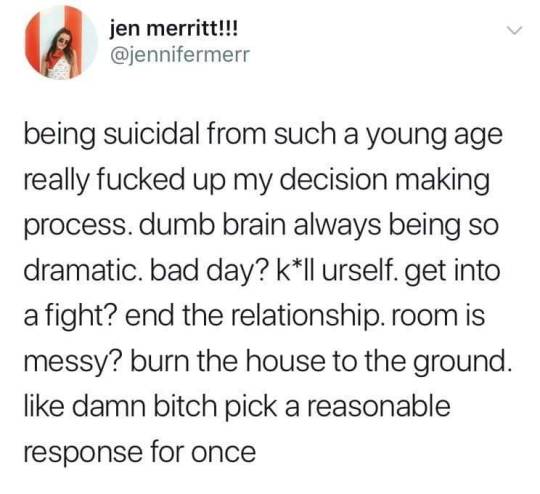
#actually borderline#bpd feels#bpd mood#bpd problems#bpd thoughts#bpd vent#actually bpd#borderline personality disorder#depressing shit#living with ptsd#tw bpd vent#tw self destructive behavior#tw depressing thoughts#tw depressing stuff#tw depression#actually ptsd#childhood trauma#trauma#borderline things#borderline thoughts#sad thoughts#suicide
17K notes
·
View notes